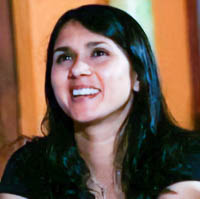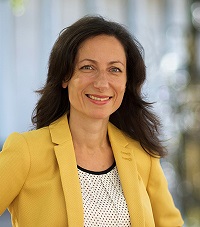Install this application on your home screen for quick and easy access when you’re on the go.
Just tap then “Add to Home Screen”


The annual Stein Rokkan Prize for Comparative Social Science Research is presented by the International Science Council (ISC), the University of Bergen and the ECPR. Thanks to the generosity of the University of Bergen, it now carries a prize fund of £4,300.
The prize is open to works in comparative studies from all social science disciplines. It is given to a submission deemed by the Jury to be a substantial and original contribution in comparative social science research.

Stein Rokkan was a pioneer of comparative political and social science research, renowned, among other things, for his groundbreaking work on the nation state and democracy.
A brilliant researcher and a professor at the University of Bergen, where he spent most of his career, Rokkan was also president of the International Social Science Council (an organisation that merged to form the ISC in 2018), and one of the founder members of the ECPR.
Nominations are now open.
Nominations open: 20 February 2026
Nominations close: 1 May 2026
To nominate, please use the Nomination Form at the top of this page.
Nominations can be made by scientific institutions (including Universities and Departments, Research Centres, Academies, disciplinary unions or associations and Research Institutions), and should come via the head of the organisation/department.
Only one nomination may be received per institution. Institutions do not need to be members of either the ISC or ECPR.
Nominations must include, as three separate PDF files:
The Jury for this prize is Chaired by a member of the ECPR Executive Committee, and includes a representative from the Universitetet i Bergen and the ISC, as well as two other eminent scholars in the field of social science.
The Jury for 2025 comprised:
The winner will be announced in early 2026, firstly by ECPR.

Oxford University Press, 2024

Oxford University Press, 2023

Princeton University Press, 2022

Oxford University Press, 2021

London School of Economics and Political Science and University of Melbourne

Cambridge University Press, 2019


Princeton University Press, 2018

Princeton University Press, 2017
Universitat Pompeu Fabra and Penn State University

Oxford University Press, 2015


Cambridge University Press, 2015

Cambridge University Press, 2014

Cambridge University Press, 2013

Cornell University Press, 2012


Cambridge University Press, 2011

New York: Cambridge University Press, 2010

Cambridge University Press, 2009
Australian National University and Somero Social and Health Services
Discretionary Time: A New Measure of Freedom
Cambridge University Press, 2008
University of Georgia
Populist Radical Right Parties in Europe
Cambridge University Press, 2007
University of North Carolina Chapel Hill
Europe Undivided: Democracy, Leverage and Integration after Communism
Oxford University Press, 2005
University of Birmingham
The Nationalization of Politics
Cambridge University Press, 2004
France
European Cities, Social Conflicts and Governance
Oxford University Press, 2002
Spain
Individual and Systemic Determinants of Electoral Abstention in Western Europe
United States of America
Learning Democracy: Democratic and Economic Values in Unified Germany
Oxford University Press, 1999
The Netherlands
Social Capitalism: A Study of Christian Democracy and the Welfare State
Routledge, 1995